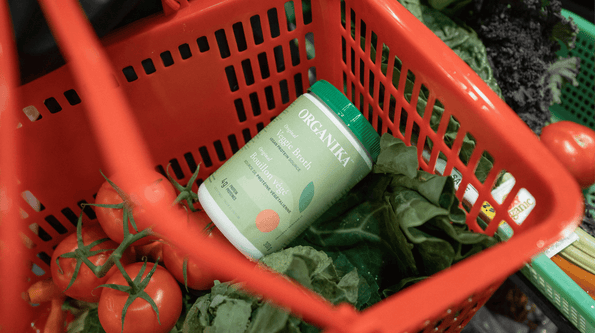Plant-based diet: a beginner's FAQ
Posted
Updated October 06, 2025

Posted
Updated October 06, 2025


consisting or made entirely of plants, or mainly of plants: “I eat a predominantly plant-based diet” Most of my meals consist of vegetables, grains, nuts, legumes, fruit… and chocolate. I also eat meat, eggs, and even, *gasp*, dairy from time to time (cheese is an unconditional love in my life). Yet, according to the definition above, I’m still plant-based. Regardless of where I’m at with my diet on any given day, I can absolutely see the benefit in reducing my animal consumption on a physical, environmental and spiritual level. I’m always curious to know more about how my diet fits in with all that. If you’re in the same boat as me, or if you’re just beginning to shift your attention to becoming more plant-based, here are some important FAQ’s to consider:
If your diet is currently high in animal products, start with 1 day a week where you avoid any kind of meat (ex: meatless monday) and work your way up to 2-3 days. Once you feel comfortable with that, take it up a notch and make those days completely animal product free. Eventually, this will become the norm and you may choose to stick to this type of diet/lifestyle indefinitely or at least more consistently.
It is absolutely possible to get enough protein on a plant based diet. Protein is made up of chains of amino acids, and foods that contain all 9 amino acids are considered a complete protein. There are many plant-based foods that are complete proteins. Vitamin B12 is made by microorganisms and isn’t produced by plants. Vegans can get B12 from nutritional yeast flakes, and some fortified foods, but will likely benefit from supplementation. In terms of iron levels; dried beans and dark leafy greens are especially good sources of iron. Iron absorption is increased significantly by eating foods that contain vitamin C along with iron containing foods.
There’s lots! Buckwheat, chickpeas, lentils, nutritional yeast, spelt, amaranth and quinoa, tofu*, tempeh*, edamame beans*, pumpkin seeds, nuts and nut butters, hemp seeds, chia seeds, spirulina, miso* are all good sources of protein. If you’re thinking of vegetables alone, the veggies with the most protein are broccoli, spinach, asparagus, artichokes, potatoes and brussels sprouts (4-5 g per cup). Fruits that have the most protein are guava, cherimoya, mulberries, blackberries, nectarines and bananas (2-4 g per cup). *Make sure any soy product you buy is organic and non GMO.
This is a difficult question to answer. There’s pros and cons to them all. You’ll have to pick and choose your battles when deciding on which milk alternative is best for you.
Hemp, rice, hazelnut, macadamia and even spelt milk are also available on the market!
You can also make your own nut/oat milk easily at home by soaking nuts/oats and blending them with water. Soaking nuts helps remove the phytic acid and neutralize enzyme inhibitors, allowing us to better absorb the vitamins, minerals and protein content. 
According to this Oxford study, switching to a plant-based diet can help fight climate change. The study found that meat and other animal products are responsible for more than half of food-related greenhouse gas emissions, with beef and lamb having the most damaging effects on the environment. Cutting down on meat and dairy products could reduce an individual's carbon footprint by two-thirds, according to the study, published in the journal Science. 
Try not to get bogged down by the overwhelming amount of information out there. And don’t strive for perfection; it doesn’t have to be all or nothing, but it is worth experimenting with. I hope this information helps you at least start thinking about how you can begin reducing your animal product consumption.

Registered holistic nutritionist and kinesiologist, Karolina Gnat can often be found in the kitchen, yoga studio or outside in nature. She believes that good health starts with a good diet, but emphasizes that what’s “good” for one person may be very different for another. She resides in beautiful Victoria, BC with her partner and their imaginary dogs.
Get expert-backed health tips, education, product news, and exclusive offers delivered to your inbox.
Follow @organikahealth for your daily dose of feel-good. #LiveOrganikally